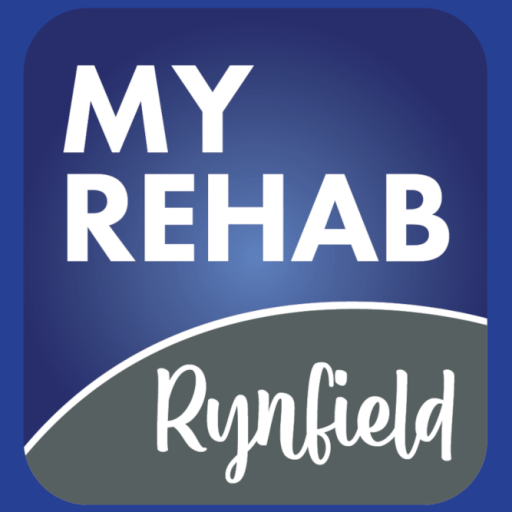
Why Are Addiction Withdrawal Symptoms Challenging in Rehab?
Why Are Addiction Withdrawal Symptoms Challenging in Rehab?
Managing addiction withdrawal symptoms in rehab is challenging because of the profound neurobiological changes that occur in your brain. When dopamine levels drop, you can feel depressed, anxious, and irritable, while your stress response goes into overdrive. This leads to strong cravings and various physical and psychological symptoms that demand specialized care and support. To understand why these symptoms are so tough in rehab, consider the complex interplay of factors affecting your recovery.
Neurobiological Impact of Withdrawal
Withdrawal from addictive substances triggers significant neurobiological changes in the brain. When you stop using these substances, your brain’s chemistry is thrown off balance, leading to various symptoms. Dopamine levels, responsible for pleasure and reward, plummet, causing feelings of depression, anxiety, and irritability. Your brain’s stress response system becomes hyperactive, amplifying feelings of discomfort and unease.
During withdrawal, your brain struggles to adapt to the absence of the substances it has become dependent on. This adjustment period can result in intense cravings as your brain desperately seeks to restore its chemical equilibrium. The neurobiological changes can also manifest physically, with symptoms like sweating, tremors, nausea, and insomnia.
Understanding these neurobiological impacts is crucial in rehab. By recognizing the profound changes occurring in your brain, treatment programs can tailor interventions to help manage withdrawal symptoms effectively. Through targeted therapies and support, your brain can gradually stabilize, paving the way for a successful recovery journey.
Psychological Manifestation of Symptoms
Amid addiction withdrawal, individuals may experience a range of psychological symptoms that can significantly impact their emotional well-being and mental state. These symptoms can manifest as intense anxiety, depression, irritability, mood swings, and cognitive difficulties such as poor concentration and memory issues. You might find yourself feeling overwhelmed by negative emotions, struggling to cope with stress, and experiencing a sense of hopelessness or despair. It is common to have intense cravings for the substance of abuse, leading to heightened feelings of frustration and restlessness. Furthermore, withdrawal can trigger emotional instability, causing you to have unpredictable reactions and heightened sensitivity to environmental stimuli. The psychological manifestations of withdrawal can make the recovery process challenging, as they require a strong support system, coping mechanisms, and therapeutic interventions to address effectively. By acknowledging and addressing these psychological symptoms, you can work towards regaining emotional stability and mental clarity during your journey to recovery.
Challenges in Medication Management
Handling medication poses challenges during addiction withdrawal, impacting the recovery process and necessitating specialized attention and management strategies. One of the primary challenges in medication management during addiction withdrawal is ensuring proper dosing and administration to alleviate withdrawal symptoms effectively. This process requires close monitoring by healthcare professionals to prevent misuse or over-reliance on medication, which can hinder the recovery progress. Managing multiple medications for co-occurring conditions or dual diagnoses adds complexity to the treatment regimen, as interactions between different drugs must be carefully considered to avoid adverse effects. Moreover, individuals in rehab may have varied responses to medications due to factors like metabolism or previous substance use, necessitating individualized treatment plans. Proper communication between patients, healthcare providers, and support staff is crucial to address any concerns or adjustments needed in the medication regimen promptly. Overall, medication management in addiction withdrawal demands a tailored approach and thorough oversight to ensure safe and effective treatment.
Social and Emotional Triggers
Navigating social and emotional triggers in addiction recovery requires self-awareness and proactive coping strategies. Recognizing situations or emotions that may lead to cravings is essential. Be mindful of environments or people that trigger thoughts of substance use. By identifying these triggers, you can develop effective strategies to manage them. Remember, it’s okay to seek support from your rehab team or loved ones when facing challenging emotional situations. Engaging in healthy activities like exercise, mindfulness practices, or hobbies can also help regulate your emotions and reduce the impact of triggers. Building a strong support network of individuals who understand your journey can provide comfort during difficult times. Learning to express your emotions in a healthy way and practicing self-compassion are vital components of navigating social and emotional triggers in addiction recovery. Stay committed to your recovery journey, and remember that taking proactive steps to address triggers is a significant part of your path to healing.
Strategies for Coping and Support
Effective coping strategies and strong support systems are crucial elements in navigating addiction recovery successfully. When facing withdrawal symptoms in rehab, it’s essential to have a toolkit of coping mechanisms at your disposal. Engaging in mindfulness practices like deep breathing or meditation can help manage stress and cravings. Keeping a journal to track your progress and emotions can provide insight and a sense of control. Moreover, staying connected with supportive friends, family members, or a sponsor can offer encouragement and understanding during challenging times. Attending therapy sessions regularly and actively participating in support groups can also enhance your coping skills and provide a sense of community. Remember, seeking help and leaning on your support network is a sign of strength, not weakness. By incorporating these strategies into your daily routine, you can navigate addiction recovery with resilience and determination.
How Long Do Withdrawal Symptoms Typically Last During Rehab?
Withdrawal symptoms in rehab vary in duration based on substance, individual factors, and treatment plan. Typically, symptoms last from a few days to several weeks. Your care team will monitor your progress and adjust treatment as needed for optimal recovery.
Can Family Members Participate in the Rehab Process?
Yes, family members can actively participate in the rehab process, offering valuable support and understanding. Their involvement can enhance your recovery journey, strengthen relationships, and promote a sense of unity in overcoming addiction challenges together.
Is There a Risk of Developing New Addictions During Withdrawal?
During withdrawal, there is a risk of developing new addictions due to the brain seeking alternative ways to cope with discomfort. It’s essential to address this vulnerability in rehab by providing comprehensive support and monitoring.
What Role Does Spirituality Play in Coping With Withdrawal?
Spirituality can offer comfort and strength during withdrawal. Connecting with higher power, meditation, or mindfulness practices can help you navigate challenges. Embrace spiritual beliefs to find inner peace and resilience in recovery.
Are There Specialized Programs for Professionals Struggling With Addiction?
There are specialized programs tailored for professionals facing addiction challenges. These programs offer targeted support and resources to help you navigate recovery successfully. Your unique needs and circumstances are prioritized for effective treatment.
Navigating addiction withdrawal symptoms in rehab can be a tough journey. The neurobiological and psychological effects, challenges in medication management, and social triggers all play a role in the difficulty of the process. Yet, with determination, resilience, and the support of others, individuals can find the strength to overcome these obstacles and move towards a healthier, drug-free life. Remember, you are not alone in this journey and there is hope for a brighter future ahead.
